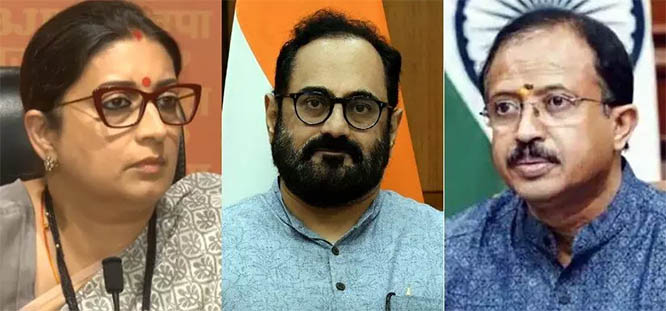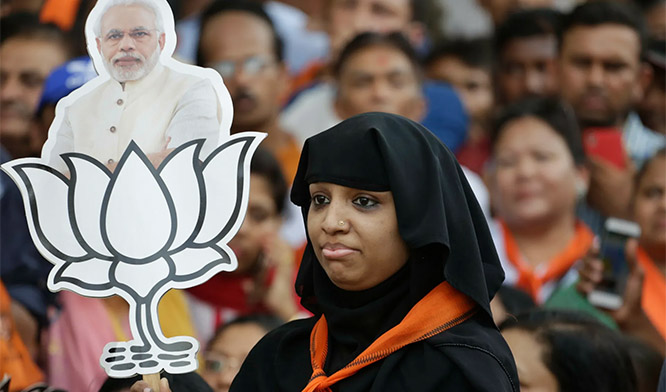Mumbai, Jul 1: India had its driest June in five years due to a delay in monsoon rains, the weather department said late on Sunday, raising fears for crops and the broader economy.
Overall, rains were a third below average, although in some states, including the sugar cane growing northern state of Uttar Pradesh, they were as much as 61 per cent down, data from the India Meteorological Department (IMD) showed.
Over half of country's arable land relies on rainfall, while agriculture makes up about 15 per cent of Asia's third-largest economy, which is already suffering a slowdown.
The monsoon usually covers nearly the entire country by July 1, but has covered less than two-thirds so far this year, according to the IMD data.
If the rains don't improve over the next two to three weeks, the country could face a crisis that hammers harvests and rural demand, analysts said. Companies supplying farmers with everything from tractors to consumer goods would be vulnerable.
The country is still recovering from a drought last year that ravaged crops, killed livestock, emptied reservoirs and drained water supplies to city dwellers and some industries.
Rains first arrived in Kerala a week late on June 8, but the developing Cyclone Vayu in the Arabian Sea drew moisture from the monsoon and weakened its progress.
Cotton, soybean and pulses growing western and central parts of India are likely to get good rainfall in the first half of July, but rains could be below average in northern India, said an IMD official, who declined to be named as he was not authorized to speak with media.
In the second half of July rainfall in north-western India could improve, but rains in central and western India could be subdued, the official said.
Overall, India faces below average rainfall in July but the deficit is likely to be far smaller than June's 33 per cent, he said.
In 2014, we received 42 per cent less rainfall in June and ended the June-Sept monsoon season with rains 12 per cent below average.
The weak start to the monsoon has delayed planting, with farmers sowing crops on 14.7 million hectares as of June 28, down almost 10 per cent on a year earlier.
For 2019, the IMD in late May forecast average rainfall, while private forecaster, Skymet, has predicted below-normal rainfall.
A normal, or average, monsoon means rainfall between 96 per cent and 104 per cent of a 50-year average of 89 cm during the four-month monsoon season, according to the IMD's classification.








Comments
Add new comment